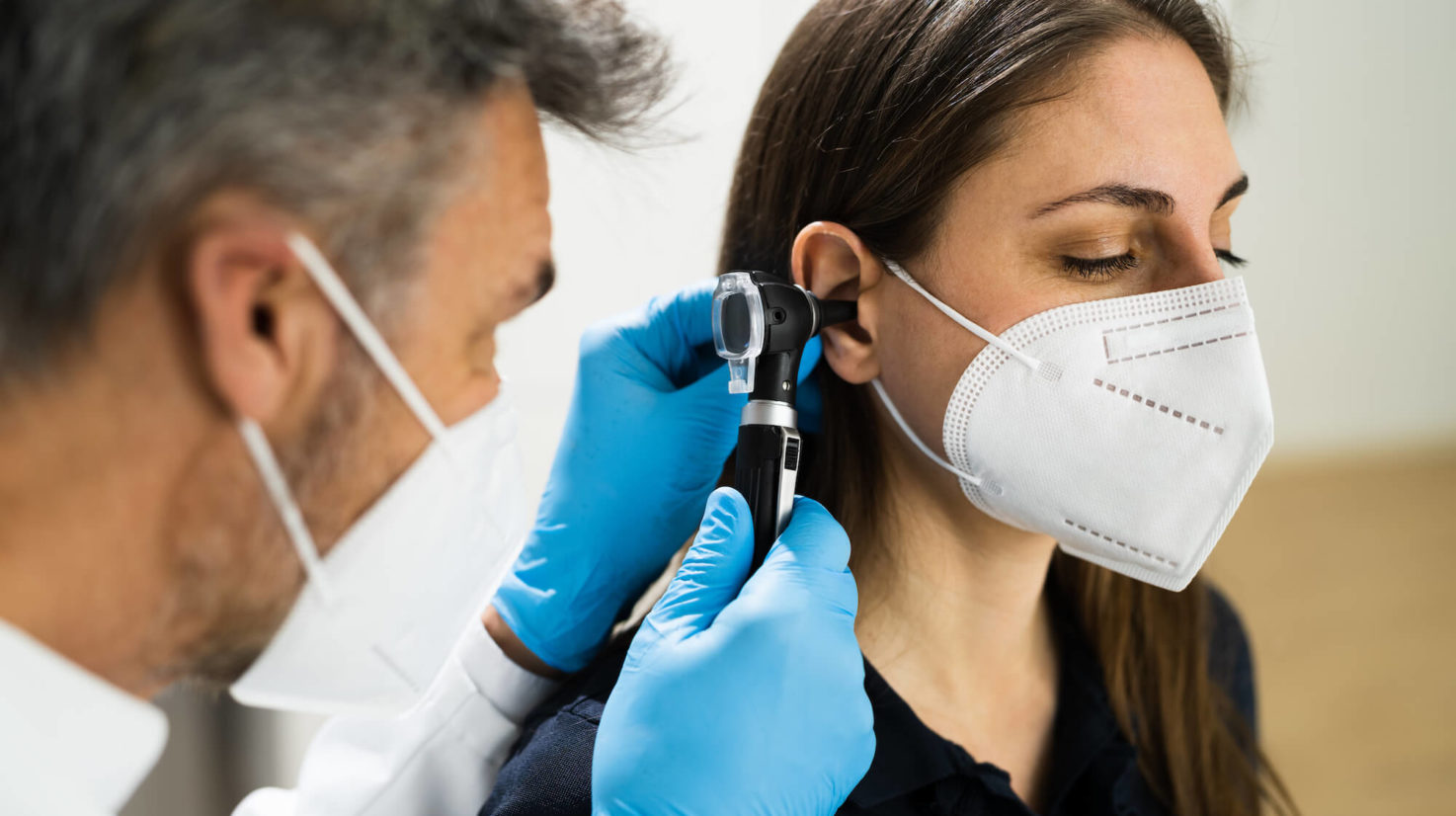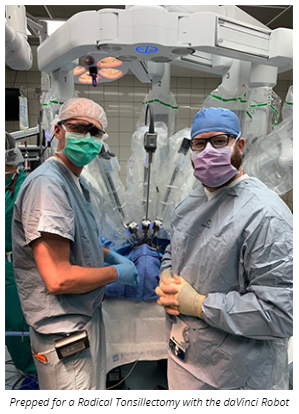Hearing Challenges? Here's When to Seek Help from a Hearing ENT
Hearing Challenges? Here's When to Seek Help from a Hearing ENT
Blog Article
Exploring the Field of Otolaryngology: What to Anticipate When You Speak With an ENT
Otolaryngology, typically described as ENT, encompasses the medical diagnosis and therapy of nose, ear, and throat problems. For those experiencing relevant issues, seeking advice from an ENT expert can provide clearness and alleviation. Understanding what to expect throughout such consultations is vital for effective interaction and treatment. This summary will certainly describe crucial aspects of the ENT experience, including common reasons for brows through and the processes associated with medical diagnosis and therapy.

Understanding Otolaryngology: An Overview
Otolaryngology, frequently referred to as ENT (Nose, throat, and ear) medication, is a customized branch of medicine that focuses on the diagnosis and treatment of conditions influencing these critical areas of the human body. This area encompasses a wide variety of conditions, consisting of those associated to hearing, balance, respiratory system function, and speech. Otolaryngologists are trained to handle both medical and medical therapies, using innovative techniques and modern technologies. Their experience expands past typical ailments, dealing with issues such as allergies, sinus infections, and hearing loss. In addition, they play an important duty in the administration of head and neck cancers, giving thorough care customized to private client demands. In general, otolaryngology remains vital for preserving wellness and top quality of life in afflicted people.
Typical Factors to See an ENT Expert
Many individuals look for the know-how of an ENT expert for a variety of reasons, showing the diverse nature of conditions that influence the throat, nose, and ear. Usual problems include chronic sinus problems, which typically brings about relentless nasal congestion and facial pain. Allergies and their linked signs and symptoms, such as sneezing and itching, additionally trigger sees to these specialists (ENT surgery). Hearing loss, whether progressive or unexpected, is one more significant factor for examination. Furthermore, people might look for analysis for throat disorders, consisting of consistent hoarseness or ingesting troubles. Rest apnea, characterized by disturbed breathing during sleep, is frequently addressed by ENT experts also. Each of these problems highlights the importance of specialized care in managing complex ENT-related health and wellness problems
Planning for Your ENT Consultation
When planning for an ENT visit, it is crucial to collect relevant information and take into consideration any type of specific problems. Individuals ought to put together a comprehensive case history, consisting of previous ear, nose, or throat problems, surgical procedures, and current medicines. Documenting signs-- such as seriousness, period, and regularity-- can provide beneficial understandings for the ENT professional. Additionally, individuals need to prepare a listing of inquiries they desire to ask, making certain that all problems are addressed during the visit. Bringing along any type of relevant clinical documents or examination outcomes can better help the ENT in recognizing the client's condition. Individuals should confirm their visit details, consisting of area, time, and date, to decrease any last-minute complication. Appropriate preparation can enhance the effectiveness of the examination and bring about much better outcomes.
What to Expect Throughout the Examination
As the appointment begins, the client can expect to take part in a detailed conversation with the ENT professional about their signs and symptoms and case history. The expert will ask regarding the period, frequency, and extent of signs and symptoms such as hearing loss, nasal blockage, or aching throat. Furthermore, the individual's previous medical conditions, medications, and any pertinent family background will certainly be reviewed, helping the professional in creating a full understanding of the person's wellness. The ENT may also ask concerning way of living variables, such as exposure to toxic irritants or allergens. This open dialogue develops a structure for the assessment, guaranteeing that the person's problems are resolved and setting the phase for any type of essential evaluations or recommendations for therapy.
Analysis Examinations and Procedures in Otolaryngology
A variety of diagnostic examinations and treatments are vital in otolaryngology to accurately evaluate and identify problems impacting the throat, nose, and ear. Typical tests consist of audiometry, which gauges hearing function, and tympanometry, evaluating middle ear pressure. Nasal endoscopy allows visualization of the nasal passages and sinuses, while laryngoscopy examines the throat and vocal cords. Imaging methods, such as CT scans and MRIs, give thorough sights of head and neck frameworks. Allergy testing may additionally be carried out to identify triggers for sinus or respiratory concerns. These diagnostic devices enable ENT experts to establish a complete understanding of patients' conditions, making sure tailored and reliable monitoring plans. Correct diagnosis is necessary for effective therapy outcomes in otolaryngology.
Treatment Options Provided by ENT Specialists
ENT specialists offer a range of treatment alternatives tailored to deal with specific conditions affecting the throat, ear, and nose. These therapies vary from conservative techniques, such as medication and way of life alterations, to more intrusive procedures. Allergic reactions may be taken care of with antihistamines or immunotherapy, while persistent sinusitis could require nasal corticosteroids or sinus surgery. For hearing loss, ENT specialists often advise listening devices or surgical treatments like cochlear implants. In instances of throat problems, alternatives can consist of speech therapy or operations to get rid of obstructions. In addition, they may supply guidance for taking care of sleep apnea, including making use of CPAP devices or surgical treatments. Overall, the objective is to boost individuals' lifestyle via customized treatment and efficient treatment approaches.
When to Seek Follow-Up Treatment With an ENT
When to seek follow-up treatment with an ENT professional is essential for handling recurring signs and symptoms or complications associated to ear, throat, and nose conditions, acknowledging. Individuals ought to take into consideration arranging a follow-up visit if symptoms persist in spite of preliminary therapy, such as chronic ear pain, nasal congestion, or throat discomfort. Changes in hearing, equilibrium concerns, or uncommon nasal discharge may also require additional evaluation. Additionally, if a patient experiences negative effects from suggested drugs or has undertaken an operation, follow-up treatment is necessary to keep an eye on healing and attend to any concerns. Prompt consultations can ensure reliable management of conditions, avoid potential issues, and supply comfort relating to one's health check my site and wellness. Looking for follow-up treatment advertises positive wellness monitoring in otolaryngology.
Often Asked Questions

What Certifications Should I Try to find in an ENT Specialist?
When looking for an ENT specialist, one ought to seek board certification, relevant experience, and strong individual evaluations. In addition, efficient communication abilities and a caring strategy can substantially enhance the total therapy experience.
Just how Do I Select the Right ENT for My Needs?
Picking the best ENT specialist involves reviewing their Visit Website qualifications, experience, and individual testimonials (ENT surgery). It is vital to ponder their interaction design and approach to therapy, ensuring they align with the person's details health requirements and choices
Exist Any Threats Connected With ENT Procedures?
The risks related to ENT treatments may consist of infection, blood loss, anesthetic difficulties, and possible damage to surrounding frameworks. Clients should discuss these threats with their physician to understand private concerns and warranty notified decisions.
How Can I Take Care Of Anxiety Before My ENT Appointment?
To manage stress and anxiety before a consultation, individuals can practice deep breathing workouts, imagine favorable outcomes, prepare questions ahead of time, and seek support from pals or family, promoting a feeling of confidence and peace.
What Should I Do if I Experience Side Effects From Therapy?
If side results from therapy take place, the person needs to quickly report them to their health care company. Adjustments to treatment or added treatments may be required to ensure security and performance in handling their problem - ENT Doctor. As the appointment starts, the patient can expect to engage in a comprehensive conversation with the ENT expert concerning their signs and clinical history. These analysis tools enable ENT experts to create an extensive understanding of clients' conditions, ensuring tailored and reliable management check out this site plans. ENT professionals provide a range of therapy alternatives tailored to attend to specific conditions influencing the nose, throat, and ear. When looking for an ENT specialist, one need to look for board accreditation, pertinent experience, and strong individual evaluations. Selecting the right ENT expert involves evaluating their qualifications, experience, and patient testimonials
Report this page